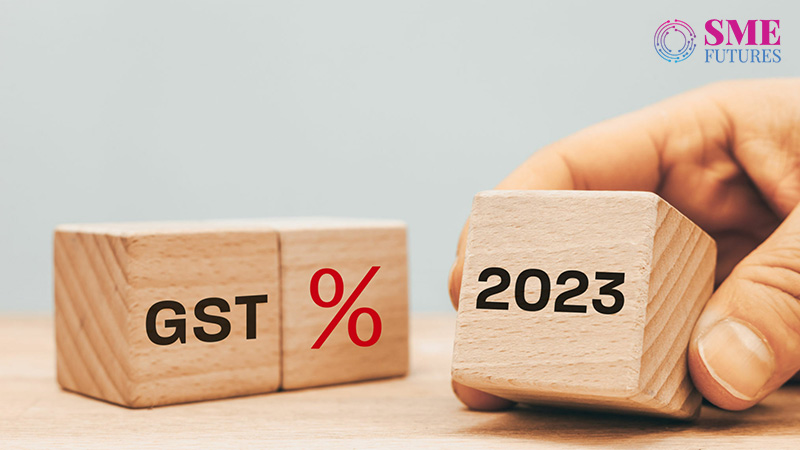The year 2023 has ushered in significant amendments to the Goods and Services Tax (GST) regime, particularly impacting Micro, Small, and Medium Enterprises (MSMEs). These changes, effective from October 1, 2023, aim to streamline processes, enhance compliance, and adapt to evolving economic landscapes. This article provides a detailed examination of the key modifications introduced, elucidating their implications for MSMEs.
Zero-Rated Supply Amendments under Section 16:
Effective October 1, 2023, substantial changes have been made to the provisions governing zero-rated supply under Section 16 of the Integrated Goods and Services Tax Act, 2017 (IGST Act). Notably, the ‘thumb rule’ for suppliers engaged in zero-rated supplies of goods/services now allows them to claim a refund of unutilised Input Tax Credit (ITC) when exporting to Special Economic Zone (SEZ) units/developers without GST payment, under a Bond/Letter of Undertaking (LUT).
Export Option Restriction and Notifications:
The option to pay GST on exports to SEZ and claim a subsequent refund is now contingent upon specific notifications. Notification No 1/2023-IT, issued on July 31, 2023, identifies goods and services eligible for this benefit, excluding certain items. However, this option may no longer be available for suppliers to SEZ units/developers, pending the issuance of a corresponding enabling notification.
Non-Realisation of Export Payments:
In case consideration for exported goods is not received, suppliers must deposit the refund received within 30 days after the specified time limit under the Foreign Exchange Management Act, 1999. This amendment underscores the importance of timely realisation of export proceeds.
Place of Supply Amendments in Transportation of Goods:
Amendments to Section 12(8) of the IGST Act alter the determination of the place of supply for transporting goods outside India. The focus now lies on the recipient’s location or consignment handover point, depending on their registration status.
E-commerce Operator (ECO) Amendments:
Effective October 1, 2023, amendments to Section 10 of the CGST Act remove the restriction preventing composition dealers from supplying goods through ECOs. ECOs must adhere to specific procedures for supplies made by composition or unregistered taxpayers, with penalties outlined for violations.
Input Tax Credit (ITC) Reversal and Conditions:
Several amendments impact ITC, including mandatory reversal for the supply of warehoused goods before clearance, non-claimability for goods/services intended for corporate social responsibility activities, and revised provisions for ITC repayment if payment is not made within 180 days.
Activities Excluded from Supply of Goods or Services:
Transactions added to Schedule III of the CGST Act, with retrospective effect from July 1, 2017, include the supply of goods within a non-taxable territory and the supply of warehoused goods before clearance for home consumption.
Filing of Returns and Statements:
Amendments specify that filing of returns and statements under GST will not be allowed after three years from the relevant due dates. Non-filers have a 60-day window (extendable to 120 days with late fees) from the date of ASMT-13 to file returns.
Revocation of Registration Cancellation and Interest on Delayed Refund:
The time period to submit an application for revocation of GST registration cancellation has been extended to 90 days, with a further extension of 180 days possible. Additionally, interest will be provided for delayed refunds beyond 60 days.
Changes in OILDAR Landscape:
Streamlining the definition of a non-taxable online recipient and revising Form GSTR 5A, these changes simplify the Online Information and Database Access or Retrieval (OIDAR) landscape.
Monetary Limits for Prosecution and Compounding:
Prosecution threshold has been amended to Rs 2 Crore, and fees for compounding of GST offenses have been reduced. However, compounding is no longer an option for cases of fake invoicing.
GST Rate on Online Gaming:
From October 1, 2023, a GST rate of 28 per cent on the value of initial deposits staked/chips purchased by players with online real money gaming platforms/casinos will be implemented, subject to review by the GST Council after six months.
GST Liability on Ocean Freight under RCM:
Amendments in response to a Supreme Court decision eliminate GST on ocean freight for CIF imports.
These comprehensive amendments to the GST regime in 2023 underscore the government’s dedication to cultivating a business-friendly environment. The continuously rising gross GST collections reflect the financial resilience of MSMEs. For instance, in the fiscal year 2023-24, ending November 2023, the gross GST collection stood at ₹13,32,440 crore, averaging ₹1.66 lakh crore per month. This marks an 11.9 per cent increase compared to the gross GST collection in the fiscal year 2022-23, ending November 2022, which was ₹11,90,920 crore, averaging ₹1.49 lakh crore per month.
However, MSMEs are encouraged to thoroughly comprehend these changes, ensuring compliance and optimising their operations within the updated framework.











